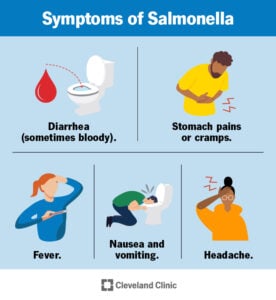
In addition to the so-called “Million Dollar Jackpot” provision” that Republicans snuck into their so-called “clean” spending bill that ended the shutdown, at least two more provisions were also quietly inserted into the bill with zero public discussion.
Gutting of food safety regulation
Senators inserted language into the bill to cut funding for food safety regulations, specifically for monitoring the foods that are at the highest risk of bacterial contamination. They inserted a provision that prohibits funding to enforce a 2022 law (Section 4 of the FDA Food Safety and Modernization Act) that requires additional scrutiny and tracing of foods that have a higher risk of bacterial contamination, including many that had increasingly been in the news for causing outbreaks of food borne illnesses. The list includes foods like soft cheeses, eggs, leafy greens, nut butters, cucumbers, melons, sprouts, tomatoes, some tropical fruits, fresh-cut vegetables, some fish and shellfish and ready-to-eat deli salads. Salmonella and campylobacter are known to often be in raw chicken and poultry items like eggs; E. coli is a frequent contaminant of unpasteurized milk or undercooked meat, and Listeria can be found in soft cheeses and other ready-to-eat foods.

The section Republican senators inserted to kill these food safety inspections starts at the bottom of PDF page 154 of the 394-page bill, at Section 780, line 21 on page 154 and continuing on page 155. It states,
“SEC. 780. No funds appropriated by this Act may be used to administer or enforce the ‘’Requirements for Additional Traceability Records for Certain Foods,’ published 24 on November 21, 2022 (87 Fed. Reg. 70910), or any other rule promulgated in accordance with section 204 of the FDA Food Safety Modernization Act (21 U.S.C. 2223), prior to July 20, 2028.”
Cases of food borne illness resulting from contamination with pathogens like listeria, e coli, salmonella and botulism increased by about 25% last year, but led to more than double the number of hospitalizations and deaths, a dramatic increase. The most recent example of this is the November, 2025 outbreak of botulism in infants linked to baby formula that so far has caused the hospitalization of 23 infants in 13 states.
The food and restaurant industries together have spent over $13 million lobbying Congress and the U.S. Food and Drug Administration (FDA) just so far this year.
Ban enacted on THC-containing products with no public discussion

Republicans snuck another provision into the agricultural spending portion of the funding bill that could wipe out the hemp industry. It changes the definition of hemp to effectively ban products containing over 0.4 milligrams of THC (tetrahydrocannabinol). The new measure bans consumable items derived from hemp, like drinks, gummies, mints and other edibles, and makes most consumable hemp products illegal. The ban takes effect on November 12, 2026. It was put in place without any public discussion and is expected to wipe out the hemp consumables industry. Estimates are that 95% of the hemp extract products currently on the market would be banned. The measure threatens an estimated 300,000 jobs nationally and would wipe out a $28 billion industry.
The section banning hemp products starts on PDF page 156 at Line 10 of the funding bill.
